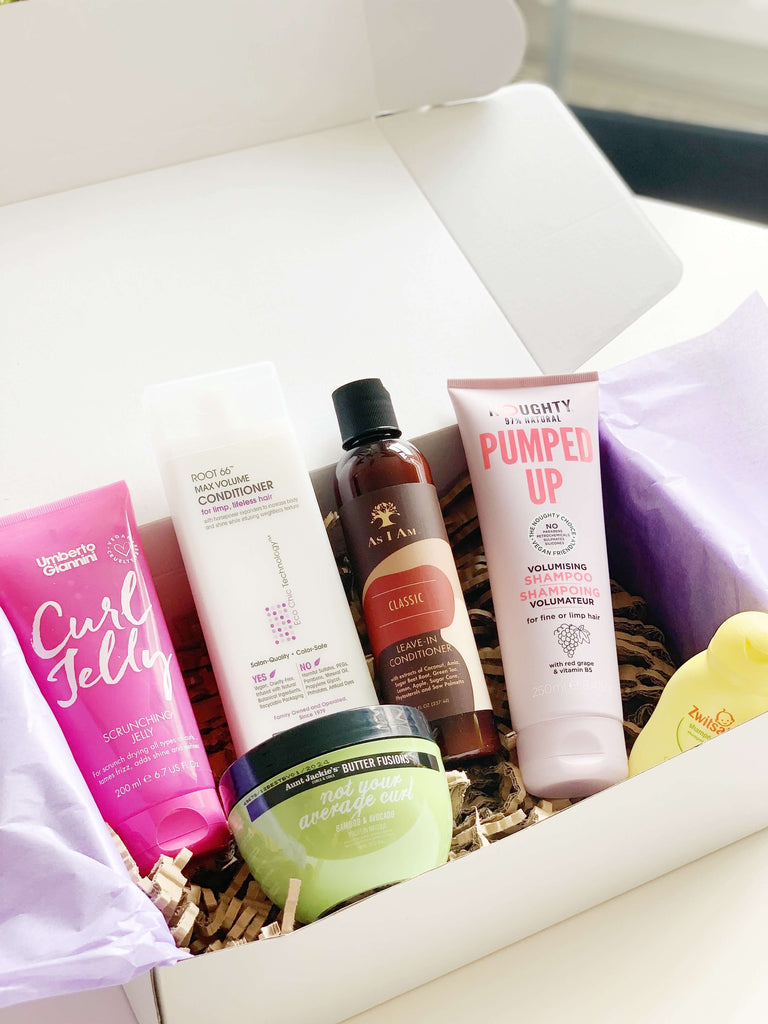Sulfates in hair products
Within the Curly Girl Method, sulfates are avoided because they are powerful cleansers. You can find them in all kinds of products, such as dishwashing liquid, body soap, floor cleaners and many shampoos. But what makes sulfates so powerful and why should you avoid them in hair products?
What are sulphates?
Sulfates are chemicals prized primarily for their ability to foam well and effectively remove dirt and oil. This makes them popular in many cleaning products. In shampoos, sulfates help to thoroughly clean the hair by removing grease and dirt from the scalp and hair strands.
What are sulfates made of?
It starts with some fat, which can come from coconut oil or palm oil, but sometimes it is also extracted from petroleum. This grease is mixed with sulfuric acid, a very strong substance that helps convert the grease into something that cleans very well. To soften the mixture so that it is not too harsh on your hair, a strong base such as sodium hydroxide is added. This process results in sulfates, like those in shampoo, which help to thoroughly clean your hair.
What is the impact of sulphates on (curly) hair and the scalp?
While the cleansing power of sulfates may seem helpful, it can also have drawbacks, especially for curly and dry hair. Sulfates can strip the hair's natural oils, causing the hair to become dry and brittle. For people with curly hair, which is naturally drier, sulfates can lead to extra frizz and loss of definition in the curls.
We all know clean hair feels good, but too clean can actually be problematic. Sulfates are those super powerful cleansers in many shampoos that not only wash away the dirt, but also the natural oils from your scalp and hair. These oils, which we call sebum, are super important. They keep your hair flexible and your scalp hydrated.
Think about it: your scalp produces this oil for a reason. It protects your skin from drying out and keeps everything nice and supple. But if you strip away those oils with sulfates every time you wash your hair, your hair is going to dry out. And dry hair? It breaks more quickly and grows less well. It doesn't get healthier o
How do you recognize sulphates in hair products?
Sulfates can be recognized by certain names on the ingredient list of products. You'll often find them within the first five to ten ingredients of a list. The most common sulfates you may encounter in shampoos and other hair products are:
- Sodium Lauryl Sulfate (SLS)
- Sodium Laureth Sulfate (SLES)
- Ammonium Lauryl Sulfate (ALS)
- Ammonium Laureth Sulfate (ALES)
There are a few exceptions, namely methosulfate. This sounds like, but you can still use this ingredient.

Alternatives to sulphates
Over the years, more alternatives to sulfates have been developed. These alternatives are cleansing ingredients that clean, but are less strong than traditional sulphates. You will also come across look-alikes, such as coco sulfate and sodium c14-16 olefin sulfonate. While these are not technically true sulfates, they have similar cleaning properties.
How does this work within the CG method?
The Curly Girl Method generally avoids the use of sulfates to preserve the natural oils in the hair and prevent dryness. But insights and opinions, both online and from our customers, are constantly evolving. An occasional thorough wash with these milder alternatives can be beneficial. The main difference is in the frequency: such a deep cleansing wash is only done occasionally, not several times a week. This helps keep hair fresh and clean without the disadvantages of daily use of strong sulphates.
Shop sulfate-free shampoos for curls
Within our shampoo collection you will almost exclusively find sulfate-free products. Discover and use filters to find the right shampoo.
